How Blockchain Will Promote The Reawakening Of Humanistic Awareness
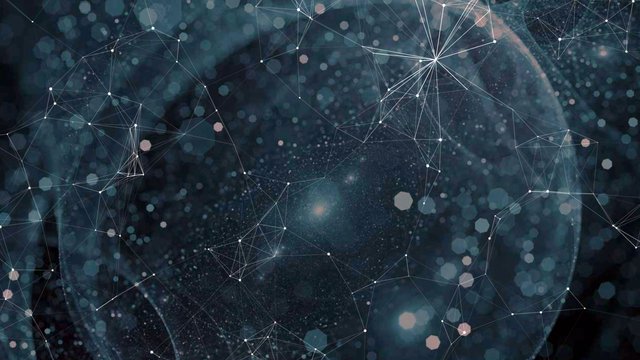
What is the relationship between science and technology, business, society, and culture?
Social civilization is always evolving with technology and business intertwined with progress. Every time technological innovation and productivity enhancement are constantly promoting the continuous development of business forms, the continuous evolution of social ideology will ultimately lead to humanistic thinking, which is the constant reawakening of humanistic awareness. What is the technological innovation brought by blockchain?
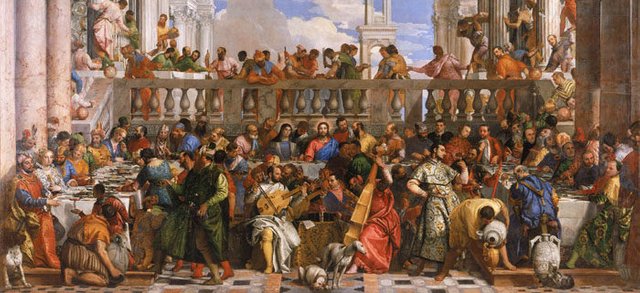
The First Awakening Of Humanistic Consciousness Brought By The Renaissance
The fifteenth century in Italy gave birth to the early industrial and commercial civilization. Historians often say that it was a generation born confused. Later generations stated that other European countries were at the time of the Middle Ages, but that Italy was a Renaissance. This is a very different story.
The Italians who gave birth to the early industrial and commercial civilization -The Venetians and Florentines (who prefer to call it this way) thought that the era was not the creation of cities by the state, but the creation of the country by the cities.
“City” is no longer a noun in the purely geographic category, but refers to a group of people made up of artisans, craftsmen, small traders, and businessmen.The industrial structure has also shifted from agriculture to handicrafts and trade. Citizens organize branches in various industries and participate in the municipal administration of cities and towns. The citizen is the product of the ideal of humanism and the unique temperance, diligence, and self-sacrifice of the merchant class.
In the secular imperial power and the imperial court, the Italians who had walked through the classical era and the Middle Ages realized for the first time that “not the state created the city, but the city created the country”. As an “urban man,” he was born, grew up, and died here. As a purely urban person, he acquired and ended his life. Florence has always respected the traditions of craftsmen. The prosperity of commerce and culture has brought about a great deal of science, art, and ideological business. The skilled craftsmen who are active in various fields have in turn stimulated the promotion of industry, technology, and culture.
The development of business, the in-depth study of science, and the extension of art have brought about the awakening of humanity—the human-centered consciousness. Awakening of human-oriented consciousness gradually spread to countries in Western Europe. Gradually, there has been a phenomenon of urban “rejuvenation.” A large number of serfs fled to the city. Leaving the estate means escaping from slavery, and moving to the city is the choice of freedom. Behind this migration is the desire for basic freedom and power. Source of labor rushing to the city has given fresh impetus to the development of urban industry and commerce. The feudal manor of the labor system collapsed.
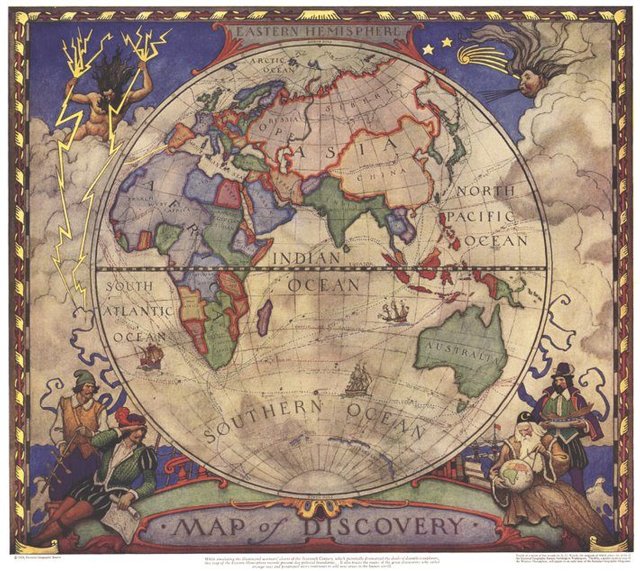
Geographic Discovery, Print Invention, Church Division
At the end of the sixteenth century, the three major historical events, the beginning of geographical discovery era, the invention of printing, and the splitting of the Christian Church, declared the end of the Great Unification.
Dante Alighieri ( a great Italian poet) writes in The Inferno that Ulysses sailed to the sea in order to explore knowledge, received punishment for violating God’s intentions, and his ship, together with all the crew, was engulfed by a hurricane.
However, people hope that the original desire to break through the constraints of natural geography is stimulated. In the era of adventure, new things that are constantly discovered need to be recognized. At the same time, the invention of mobile type printing made it possible to spread large-scale knowledge. Martin Luther’s Protestant reform reconstructed the cognition of human-human relationship. The exploration of the new world has inspired the rise of humanism. People began to think “Who am I? Where am I from? Why do we live?…”
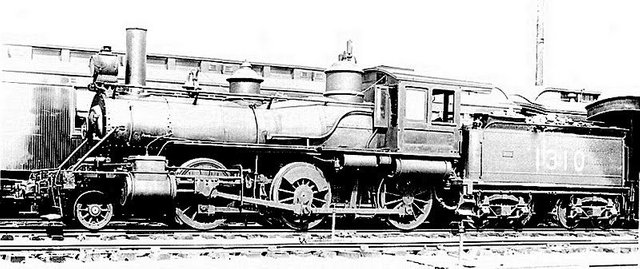
The Steam Engine Era
In the 1860s, the first industrial revolution, marked by the extensive use of steam engines, began a leap in productivity and brought humanity into the “steam era.”
Development of science and technology also drastically promoted the progress of humanistic and social ideology. The establishment of Western intellectual property protection and human rights was further attributed to this period.
The thinkers of the Enlightenment have described human consciousness from the perspective of physiology and psychology. “All human beings are born equal but unreliable.” A founding father of the United States, Madison’s “Federal Party People Collection” also vividly reflected this point.
When we trace the evolution of society, we explore deep-rooted human factors: Everyone has a powerful but error-prone sense of rationality and inherent self-awareness, and it forms the difference between people-to-person values. People have taken a big step forward in their exploration of the self. The awakening of individual consciousness runs through the history of industrial evolution since industrial civilization.
At the same time, the rise of the corporate system has further promoted the development of commerce. Individuals have better cooperation and distribution of benefits through the company.

Internet & Mobile Internet Era
By the end of the twentieth century, the emergence of the Internet has further enabled the development of people-oriented consciousness. Humanity has entered the era of a digital economy, and it has also entered an era when individual will is more autonomous.
Business forms have never been so “people-oriented” at the moment. The user experience is at an unbeatable height. Enterprises and products began to cater to users, changing the past users to adapt to the product model. For Internet companies, having a user means everything.
Personalization, respect for each user’s differences, and the first large-scale mention in business history. The treatment that would have required the rich to enjoy was now an essential means of marketing. The description of the user’s portrait, the tracking of user preferences, the information is categorized, those “your favorite” items are displayed first, and the things you care about are automatically pushed to you in the headline column. Different people use the same search engine to search for the same problem. Get different answers. In the age of personalized digital economy, life has cultivated individuality and independent decision-making capabilities in every aspect of life—Be different from the many, say No to the mass.
On the other hand, everyone can become a better source of information. Everyone’s words, ideas, and videos can be delivered to the rest of the world in seconds without any problems. In the Internet age, everyone is from the media. External voices are no longer limited to all kinds of media. Individuals can also become media centers and become sources of information. Everyone can be almost indifferent to express themselves indirectly and is encouraged to make their own voice.
Looking at the history of PC Internet development, the earliest BBS era began in 1990+. As a new thing with powerful interactivity and information content, BBS quickly occupied the screen of the computer room. People began to discuss, think, and express opinions on the BBS. The power of supervision has not paid too much attention to this corner of the Internet. New things, worlds beyond cognition, and a broader life have begun to change everyone’s ideas.
That time, the Bamboo became the big V of Sina Weibo. “I don’t remember when I was there and I don’t remember why I didn’t go.” This is a sigh that Weibo users shut down the Netease Forum. Why BBS gradually lost the moderator’s heart? In addition to the early post-liberal liberalization of supervision, it is also an excellent content creator who needs personal brand exposure and Weibo, rather than Tianya, provide such a stage for individuals with unprecedented social influence.
The era of Internet 2.0 has broken the original employment-employed labor relations. The flow of liquidity has created a focus on the economy, everyone can buy, pay attention. The shackles of the establishment of a simple employment relationship have become unprecedentedly pale.
In the same area of the shared economy, with the concept of freelancers, the individual’s value is no longer limited to the company. Self-employed becomes a trend. Even within the company, the company’s true value base is transformed from traditional assets to talent. Google’s support of Google’s market value is due to its employees, not because of its various fixed assets. The value of people is the first in the company.
In start-up companies, venture capitalists are willing to invest in companies without the need for founders to match the same amount of investment, which is also in recognition of the value of people. Whether a company is successful or not, people are the most important, not money.
Personal influence has reached the peak of history now. New social and information networks have stimulated growth and creativity. Superstars can have billions of fans. This even exceeds the total population of most countries. The technological development also breaks through our traditional interpretation of “strength”, and top hackers can also have global consequences with a laptop computer. If a person has sufficient computer skills, he can enter the network area and in a no-ones corner, the important infrastructure will be paralyzed or completely destroyed.
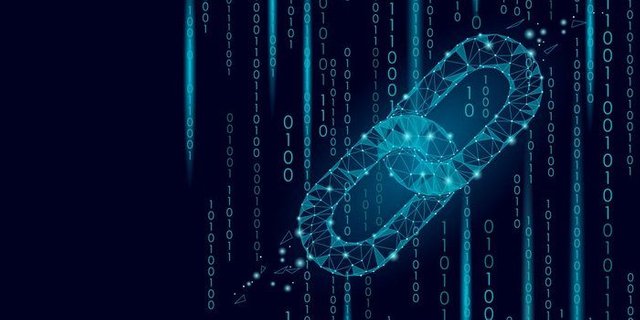
The Blockchain Era?
Yet, in the age of the Internet, individuals have completely obtained their due value?
not at all.
In any internet trading (intermediary) platform, such as Didi. If you are an Uber driver, under the “sharing economy” system, your income will be drawn 20% as Uber’s income per service. In any social (community) platform, such as Weibo. If you are a Weibo user, although Weibo will increase the market value because of the increase of users, as an individual, you do not enjoy the corresponding revenue increase.
What Will Happen To The Blockchain?
It will be difficult to answer how it will eventually evolve. However, it can be expected that the existing property rights system and modern organization system will most likely evolve into a form that better reflects the spiritual consciousness of individuals. The blockchain community that has been placed on the Internet 3.0 will also challenge the modern enterprise organization system (that is, the reform of the production relationship).
Possible Future Trends:
In the era of the blockchain, the huge profits obtained by existing enterprises through monopoly may be returned to users. The users may only need to pay for the cost of operating the system platform (system usage fee). The (organization) itself may not be profitable.
The joint-stock company may no longer exist, but instead, it is self-organized.
Self-employed trends may be more pronounced for freelancers. Freelancers will form self-organized forms and will stipulate the rules, cooperation, and distribution of benefits through smart contracts.
Token’s currency attributes (that is, tokens can be exchanged for other currencies), use of attributes (that is, tokens can correspond to a certain service), and all attributes (that is, token-specific ownership) may result in convergence. Correspondingly, the boundaries of public users, investors, and employees may become blurred.
The user’s contribution to the platform may directly generate revenue (such as obtaining tokens), instead of having to exert great influence now to realize it in other ways. For example, if you post on the Weibo-like platform, you may be able to obtain the token directly if you have read.
Everything is behind the leap in the individual influence of each user. The blockchain community will provide unprecedented space for personal awareness. It is an inevitable trend that technology promotes the development of social, commercial, and even humanistic consciousness.
Time will tell us the answer.
What are your thoughts? Comment below.
Make Sure To Follow Us On
Steemit- https://steemit.com/@thecoinowl
Instagram- https://www.instagram.com/thecoinowl/
Twitter- https://twitter.com/_OvO_TheCoinOwl?lang=en
Facebook- https://www.facebook.com/TheCoinOwl/